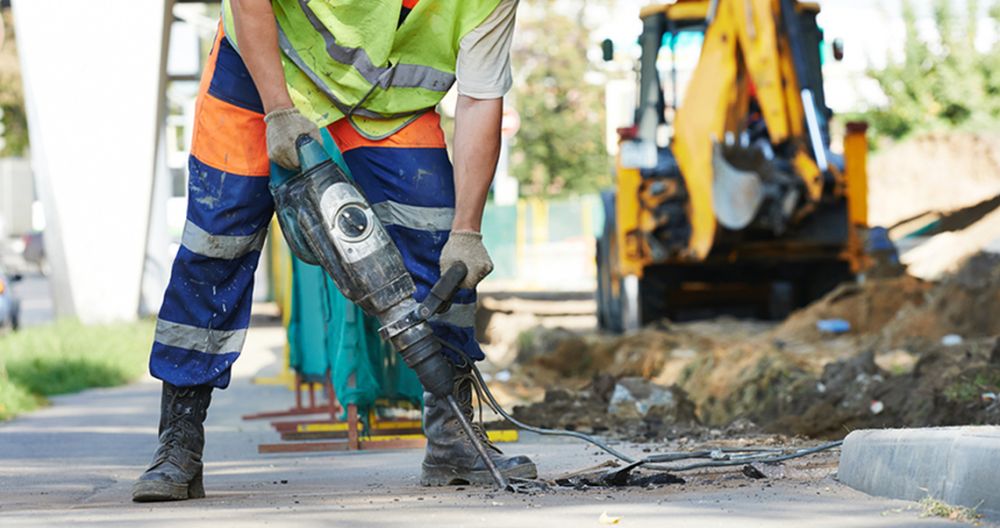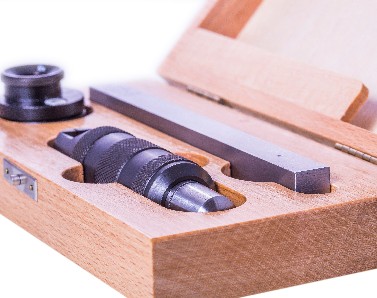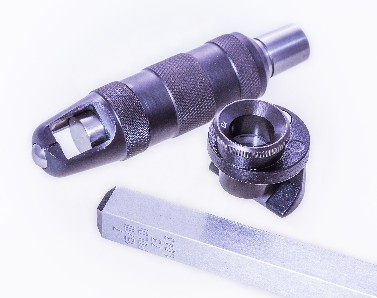POLDI HARDENESS TESTER
Our “Poldi Hammer” is the most simple and most economical device for define hardness according to Brinell and determining tensile strength of engineering and tool steels, dies, forgings, railway material, beams, sheets, pipes, cast steel and various parts of steel as well as determining hardness according to Brinell for cast bronze, aluminum, brass, cooper, grey and chilled cast iron.
POLDI hardness tester enable to perform the impact test with the help of a hammer at the workplaces, in workshops, at assembly sites or any other places. Brinell hardness and tensile strength can be read from tables then.
The test made with the POLDI hardness tester shall be performed in the following way:
Quenched steel ball with the diameter of 10 mm shall be put between the piece tested and a calibrated steel bar of a defined tensile strength (check test piece). A single strong hammer stroke shall create ball impressions into the check piece and the piece tested at the same time. Diameters of both impressions have to be measured carefully with a magnifier provided with the tester. Based on the values measured, Brinell hardness and tensile strength of the piece tested can then be read from the table. If a measuring microscope is available, diameter of impressions can be taken more precisely.
When the common POLDI hardness tester uses the check test piece made of steel having the strength of 70 kg/mm2, the deviation of the tensile strength converted from the Brinell hardness compared to the real tensile strength in case of steel having the strength of
50 – 100 kg/mm2 is maximum ±3%, in case of milder types of iron and steel having the strength of 100 – 150 kg/mm2 (e.g. with hardened, heat treated and high alloyed steels) it is maximum ±5%. With the strength of 150 – 200 kg/mm2, inaccuracy may be, under certain conditions, even a little higher.
POLDI hardness tester, as well as Brinell hardness tester, may be used for all forgeable iron and steel types with the exception of austenitic steels, e. g. steel with 25 % Ni, steel with 14 % Mn, corrosion-resistant Cr – Ni steel, non-magnetic steel, etc.
Each calibrated steel piece can be used for about 40 tests.
















